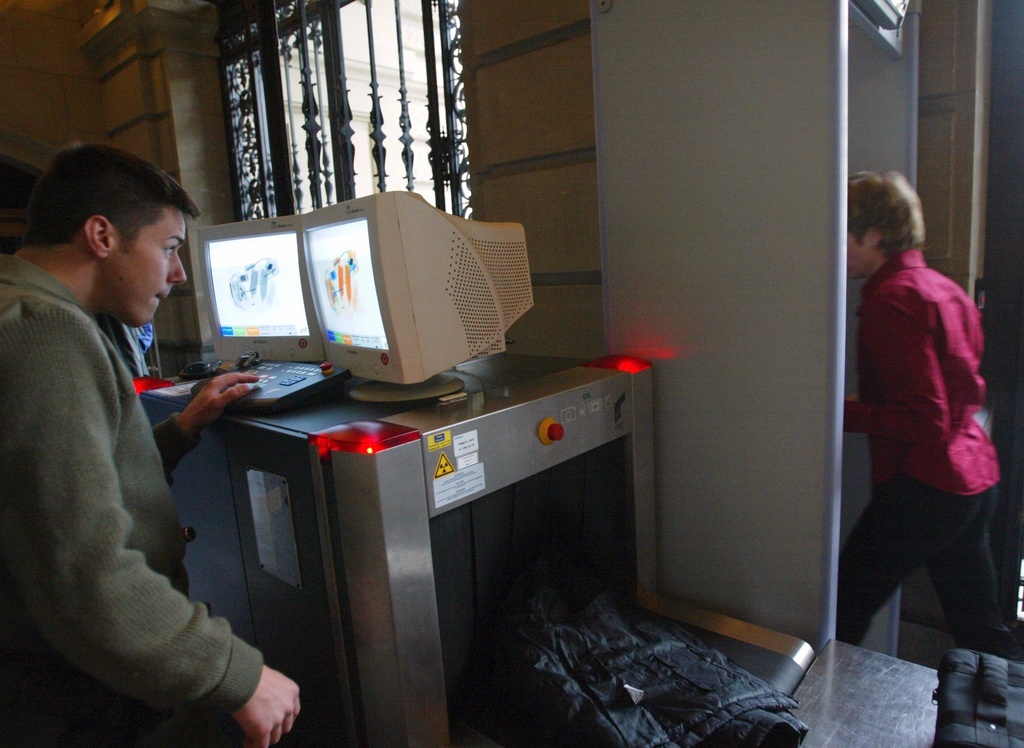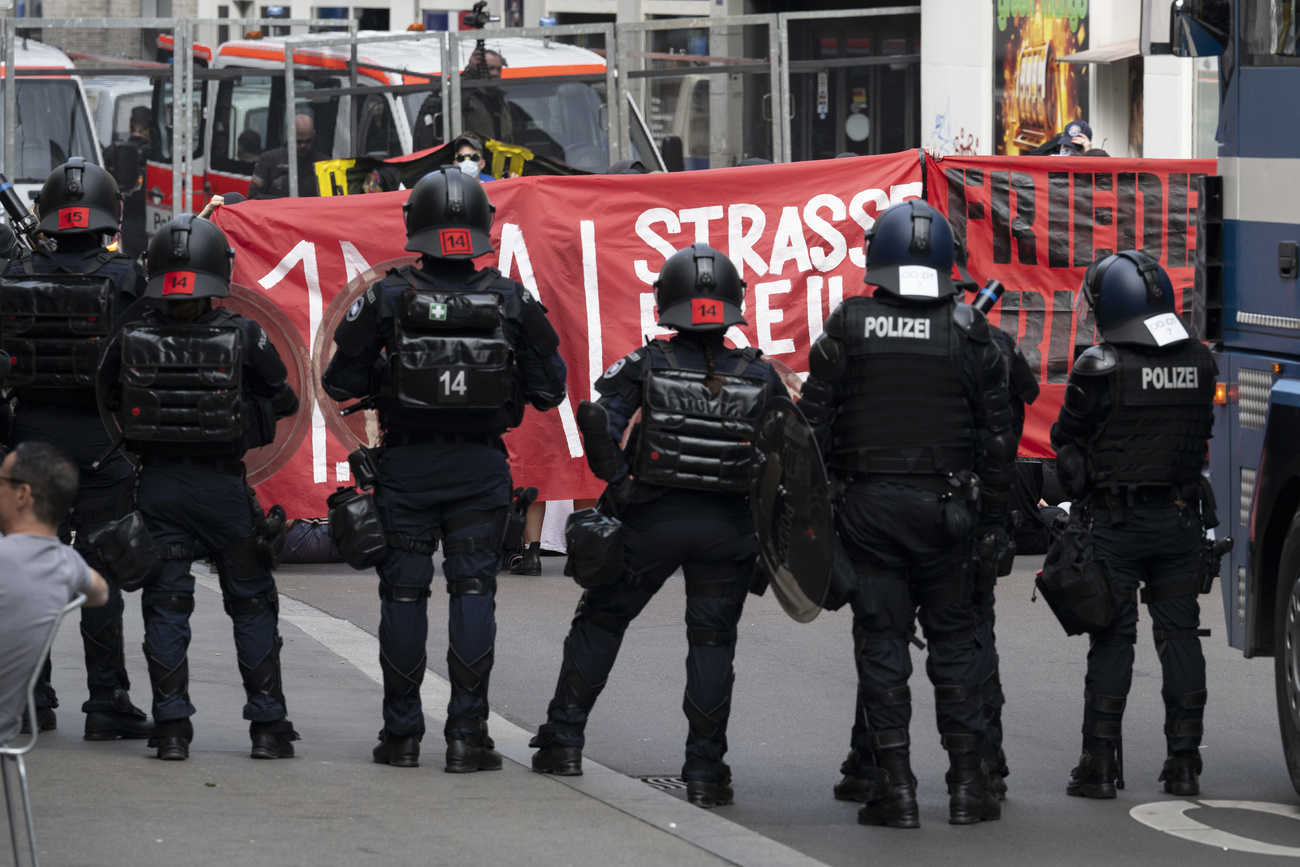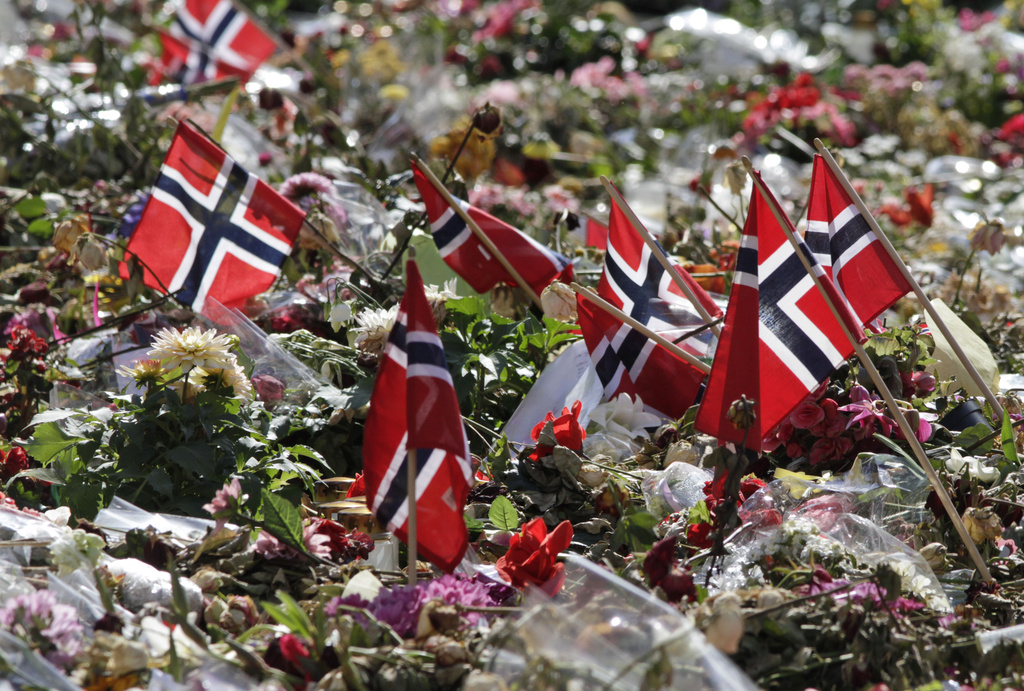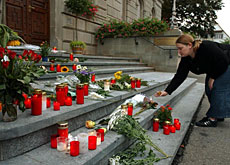Balancing security with freedom

Ten years after Switzerland’s worst-ever massacre, security has improved in parliaments across the country – but how much security can an open society bear?
On September 27, 2001, Friedrich Leibacher entered the parliament building in canton Zug wearing a police uniform. He opened fire, killing three members of the cantonal government and 11 other parliamentarians, before shooting himself. Fifteen others were injured.
One of the survivors was Heinz Tännler, a member of the cantonal parliament, who was sitting at the back of the room and hid under a desk for the longest four minutes of his life.
As a building project manager, Tännler is responsible for the security department created as part of the initial measures. These were proposed by a working group set up immediately after the shootings and approved by the cantonal government.
“The measures are to do with construction in particular – the creation of security zones – and obligatory security training for people in the cantonal administration,” Tännler told swissinfo.ch.
The killings prompted a review of public security and also led to calls for a tightening of Swiss gun laws, which are among the most liberal in the world. One of the weapons used by Leibacher during the bloodbath was an army-issue assault rifle.
Rapid reaction
Bern reacted rapidly and in an unbureaucratic way to the events, which caught Switzerland completely by surprise after the terrorist attacks on the United States just a fortnight earlier.
Parliament was in session and was a potential target for copy-cat attackers.
Hans Peter Gerschwiler, responsible for security in the parliament building in Bern, was inside the building when he heard about the shooting in Zug.
“Over the weekend [the shootings happened on a Thursday] we tightened our security measures a lot,” he said.
This was possible, he added, because they were able to pull a basically ready-made plan out of the drawer and supply reserve personnel of the Swiss Fortification Guards.
Overnight change
Increasing incidents meant they had started revising the security plan roughly a year earlier, Gerschwiler said.
“The most well-known case was in December 2000 when a group of Kurds held a tour group hostage in the Senate and occupied the hall to make their demands.”
Practically overnight, visitors, who previously just had to give the name of the person they wanted to see, were subjected to security checks similar to those in airports.
“[Until then] the visitor was neither identified nor checked in any way,” Gerschwiler said. “And they were already in the building and could get aggressive or do anything at any moment.”
Unwritten social contract
This is no longer possible. Without accreditation or a badge that can be scanned electronically, you have to pass through a security control.
The professional security guards have been armed for a few years now. A few months ago even security expert Kurt Spillmann had to submit to controls when he was invited to parliament.
“Security measures don’t bother me because they can now – unfortunately – be justified,” said the former director of the Centre of Security Studies and Conflict Research at the Federal Institute of Technology in Zurich.
He explained that the issue was always to what extent one had to limit one’s freedom for the good of society as a whole.
“Collective freedom is based on an unwritten social contract: you let me live freely and I’ll let you live freely,” he said.
Discretion
In this respect, freedom in Switzerland remains relatively open, in Spillmann’s view.
“If I think of immigration requirements or measures in the United States, here in Switzerland we’re still very moderate when it comes to limiting the freedom of movement of individuals.”
Globally, attacks on people in the public eye are increasing, he said, but the Swiss are proud that they can bump into cabinet ministers or parliamentarians in the street, in a restaurant or on the tram.
But things have also changed in Switzerland since the attacks in Zug. As the federal security service responsible for municipal figures puts it, “security measures are constantly checked and if necessary adapted in response to events”.
Discretion is always priority. The Federal Police Office doesn’t give any details on individual security measures.
Online threat
Compared with this progress, not much has happened online, according to Spillmann.
In the wake of the events in Norway in July, when a rightwing extremist killed 77 people after publishing his 1,500-page manifesto online, this form of terrorism has come into focus.
Spillmann believes closely monitoring “extreme organisations with destructive aims, which will always exist on the left and right fringes of society” to be a legitimate means of preventing future harm.
After the mass murder in Norway, Gerschwiler re-examined the measures in parliament. He said they met requirements.
He regularly meets counterparts from other countries and can rate where Switzerland stands in comparison. “It remains a very open house – a very liberal system,” he said.
According to the report by the canton Zug authorities, 57-year-old Friedrich Leibacher had a history of mental illness and frequently displayed psychopathic tendencies.
The report exonerated the cantonal police, saying there was nothing they could have done to prevent the massacre.
The killings prompted a review of public security and led to calls for a tightening of Swiss gun laws, which are among the most liberal in the world.
There are an estimated 1.2 million firearms in private hands in Switzerland and currently half a million Swiss men keep a rifle at home as part of the responsibilities under the militia army system.
One of the weapons used by Leibacher during the bloodbath was an army-issue assault rifle; all of the firearms in his possession were legally acquired.
(Adapted from German by Thomas Stephens)

In compliance with the JTI standards
More: SWI swissinfo.ch certified by the Journalism Trust Initiative













You can find an overview of ongoing debates with our journalists here . Please join us!
If you want to start a conversation about a topic raised in this article or want to report factual errors, email us at english@swissinfo.ch.